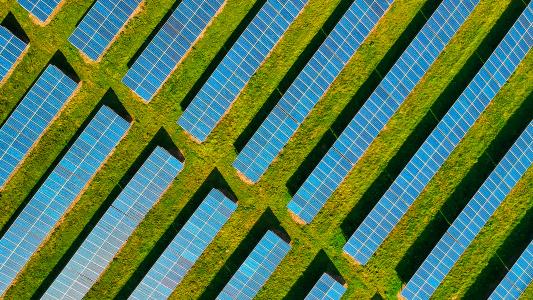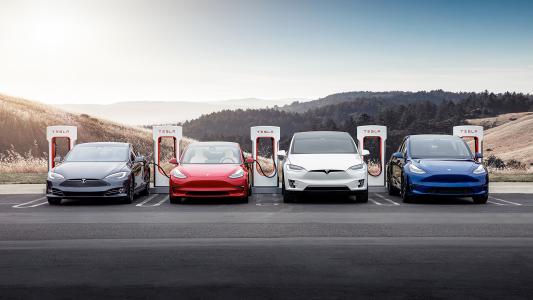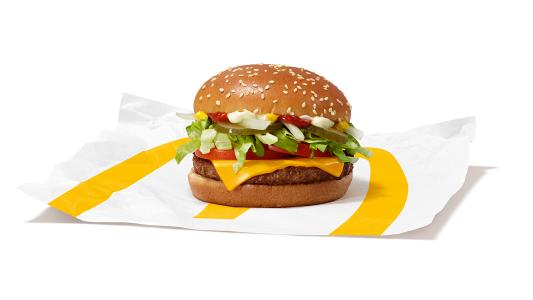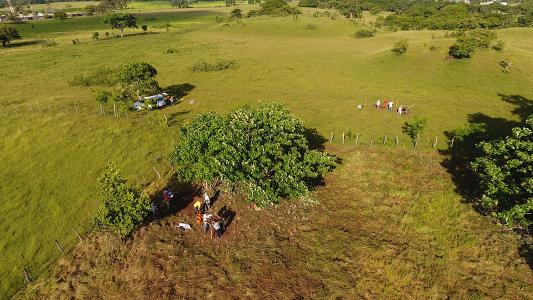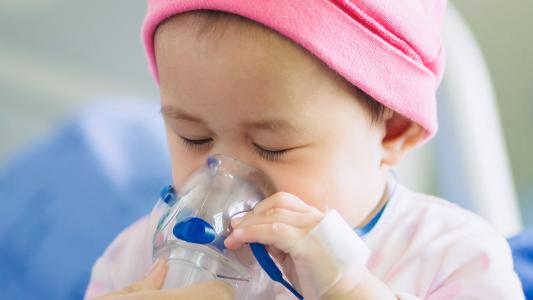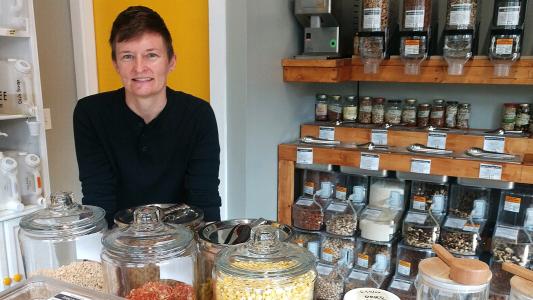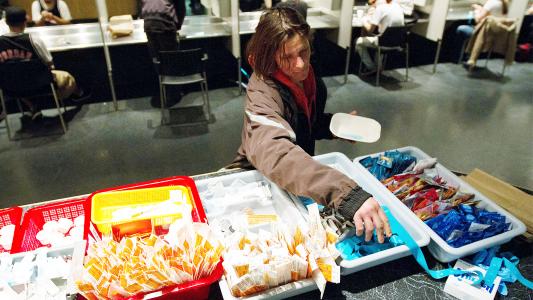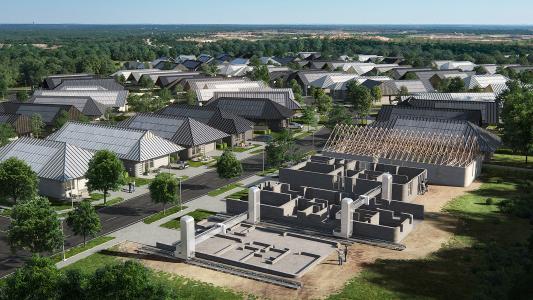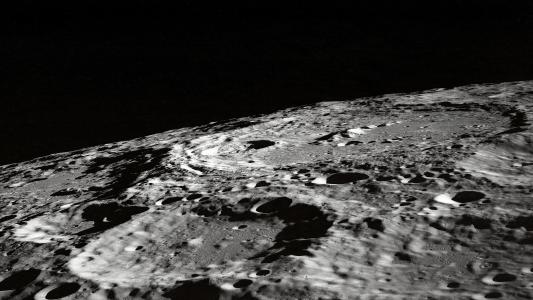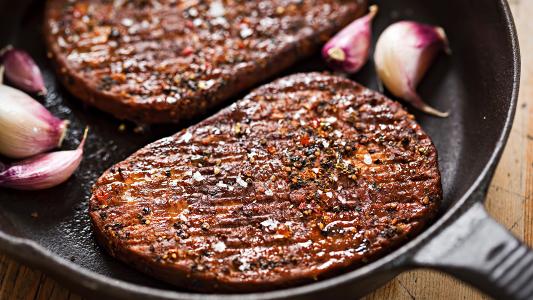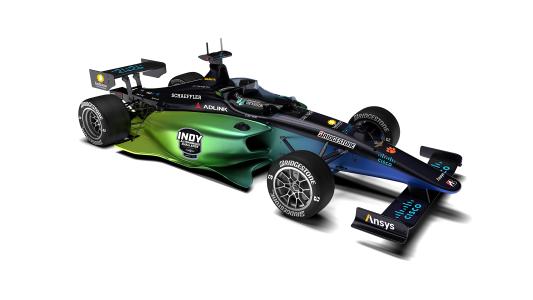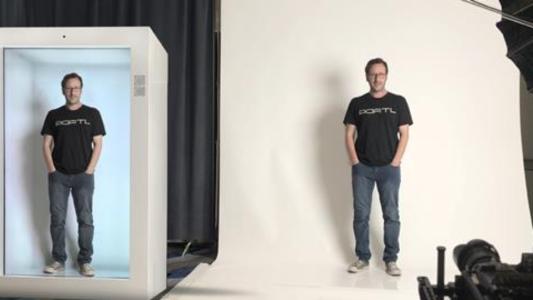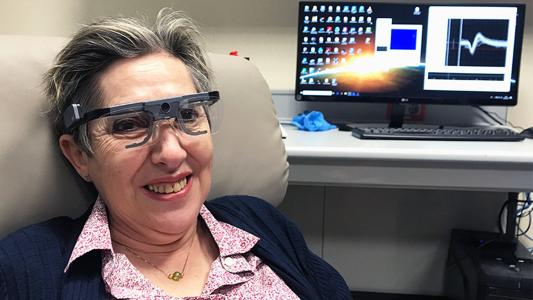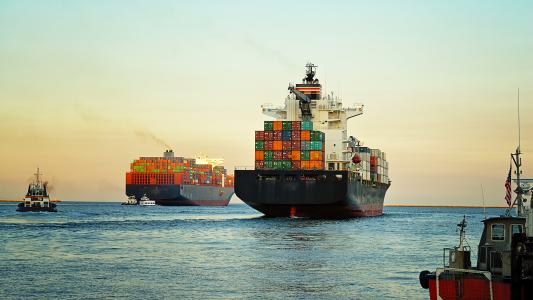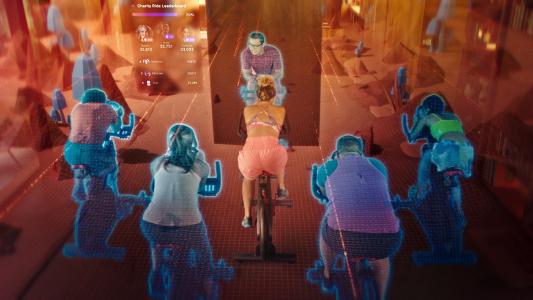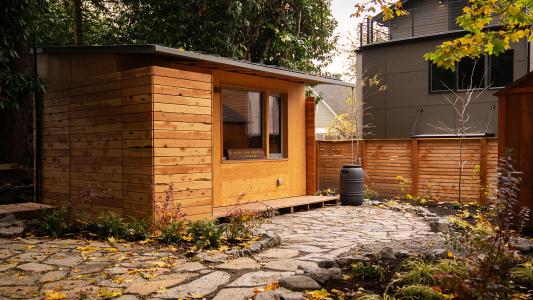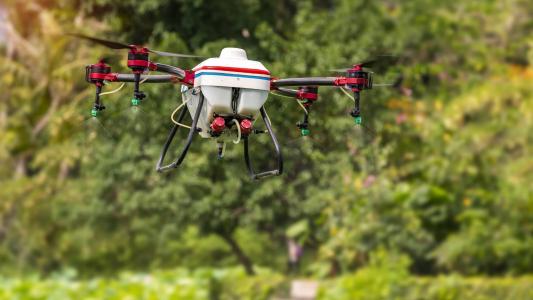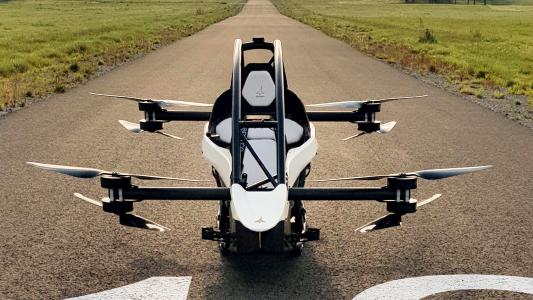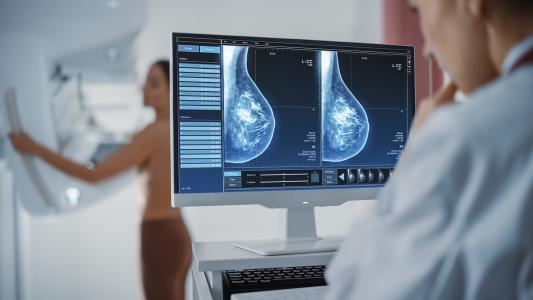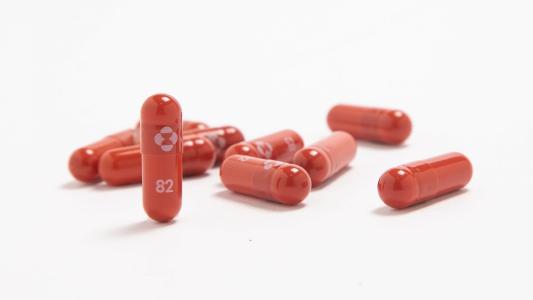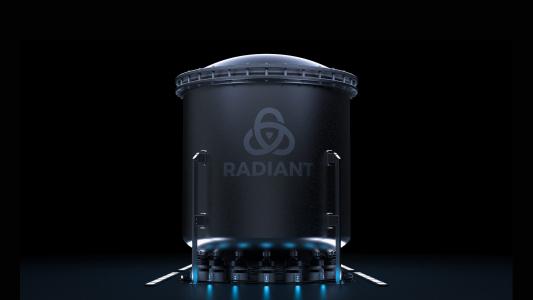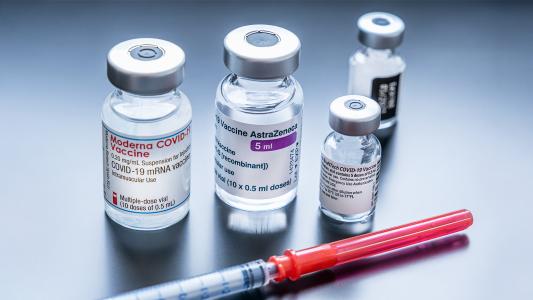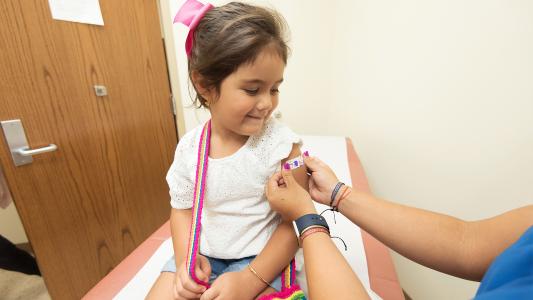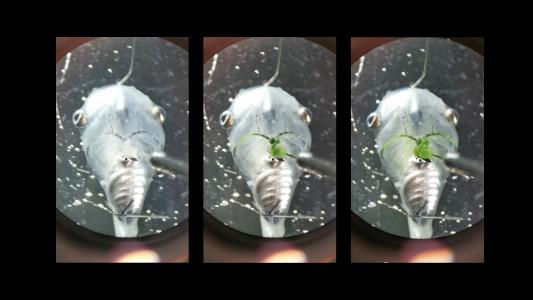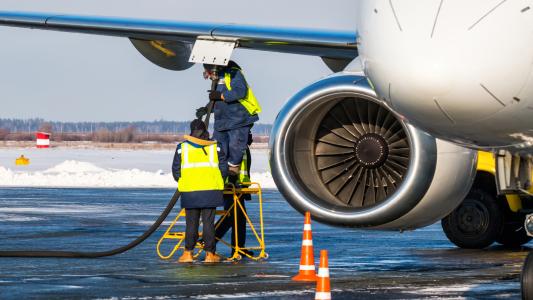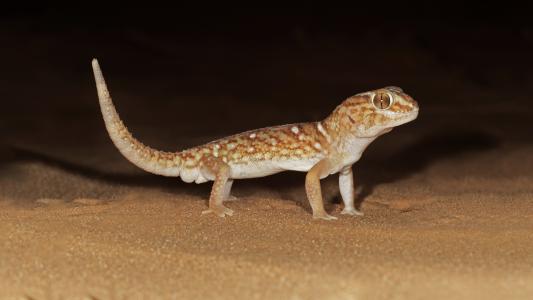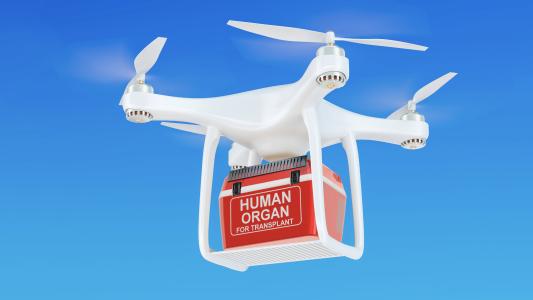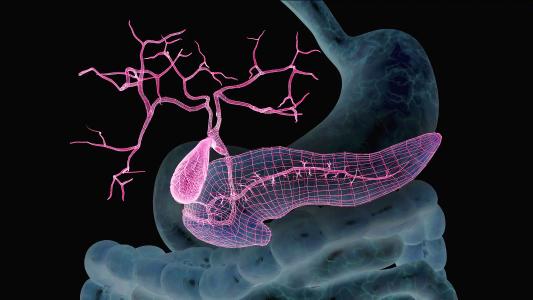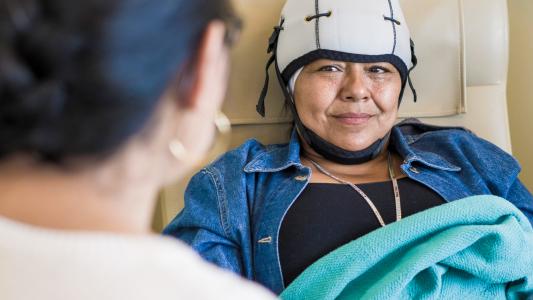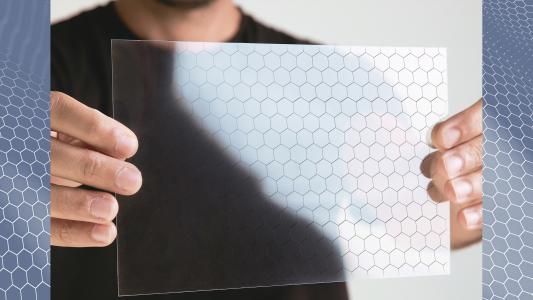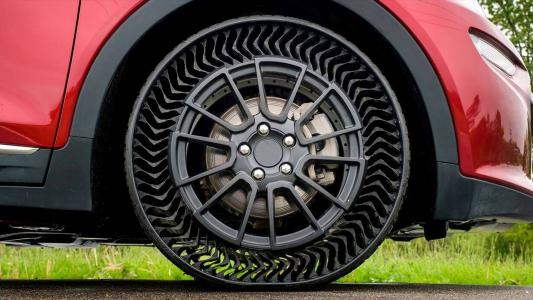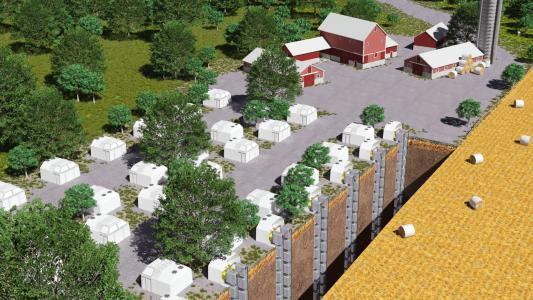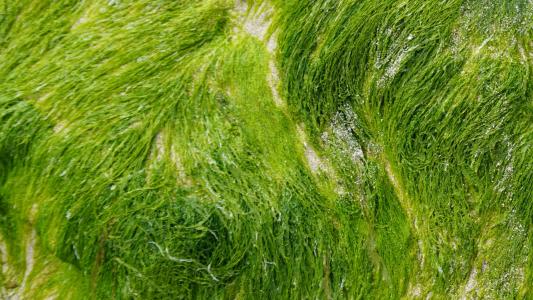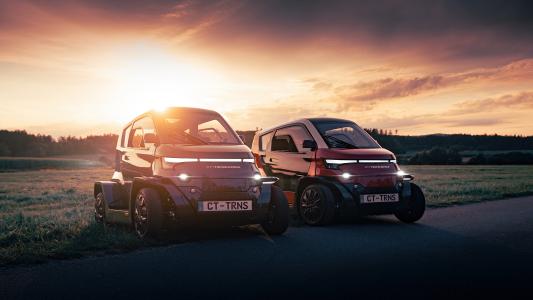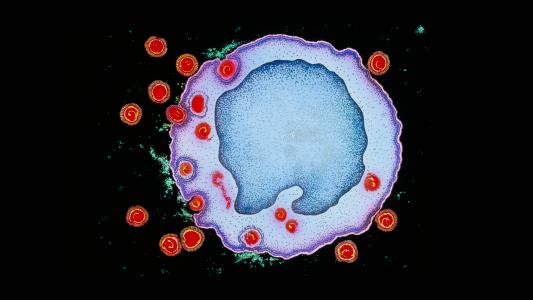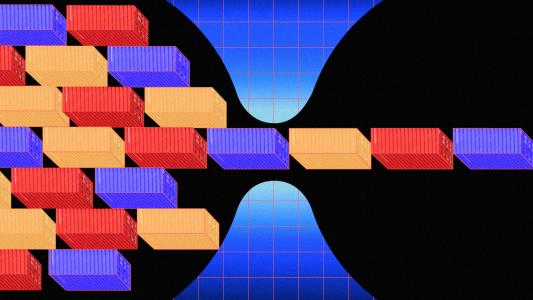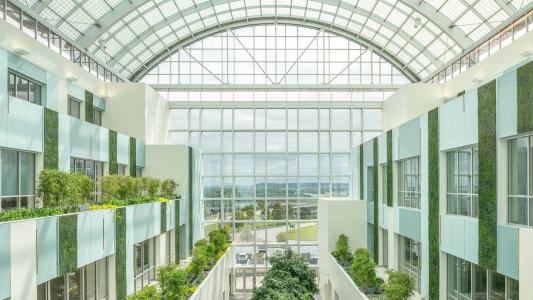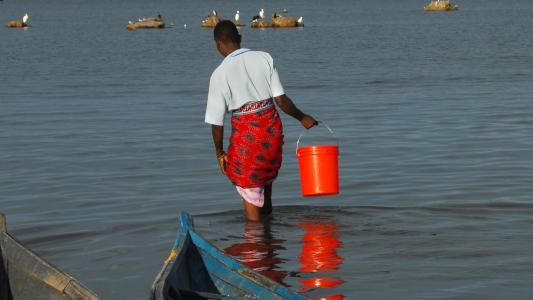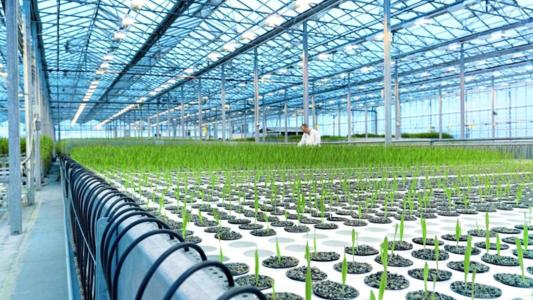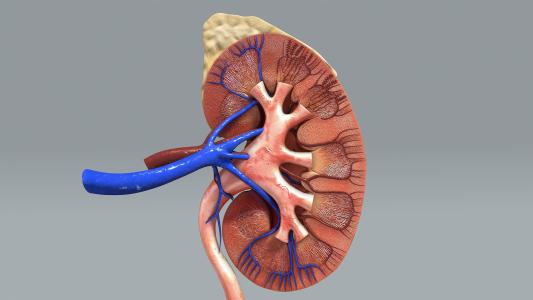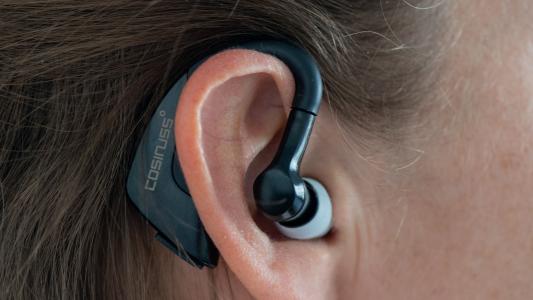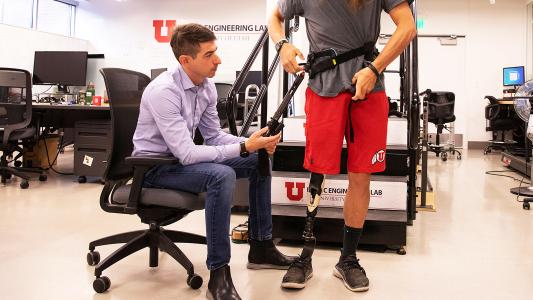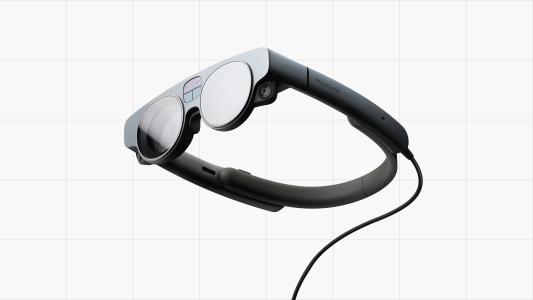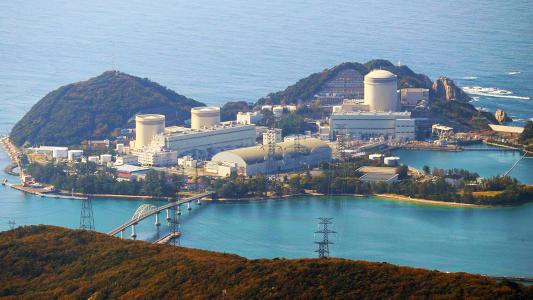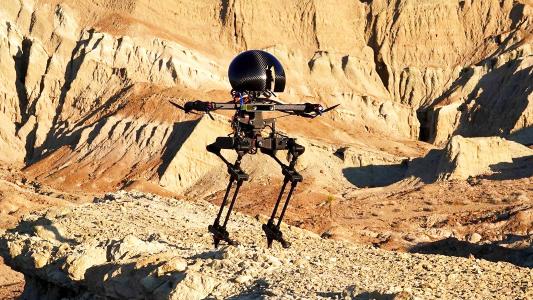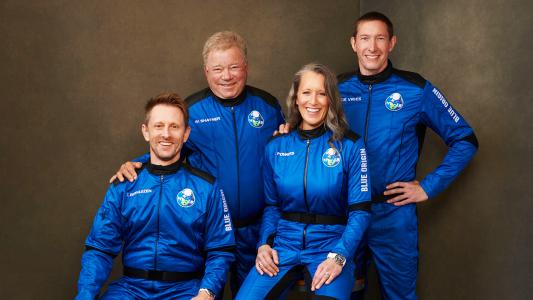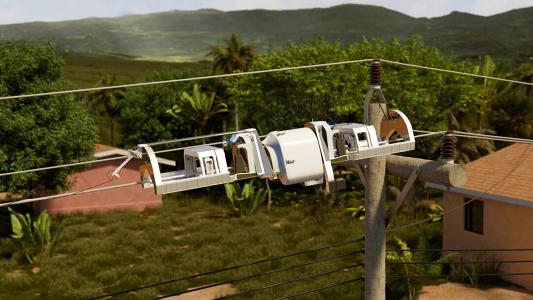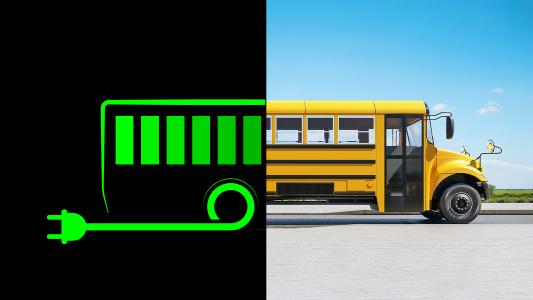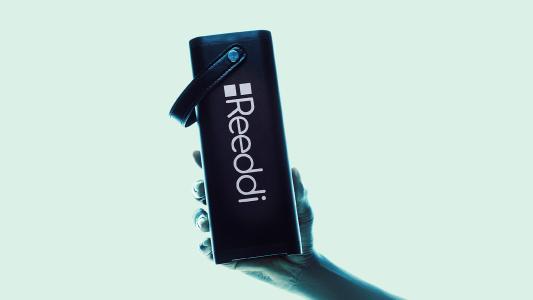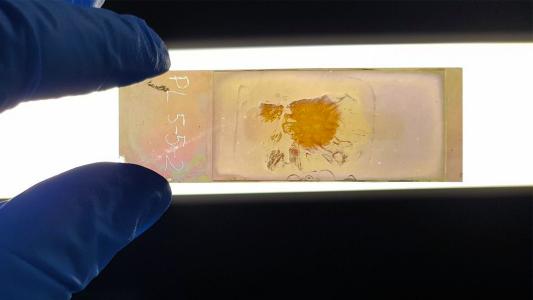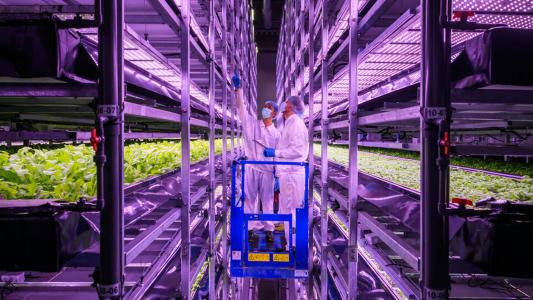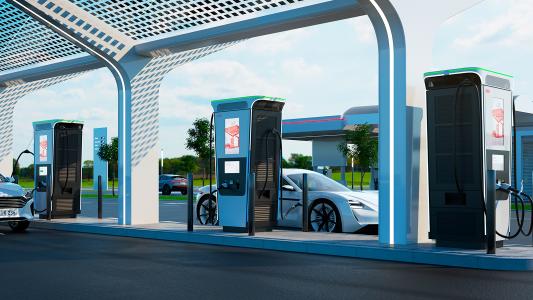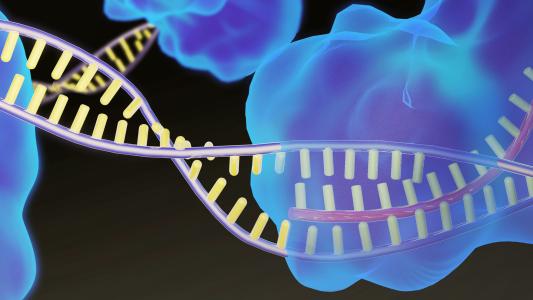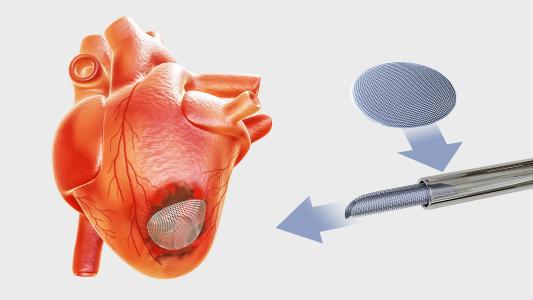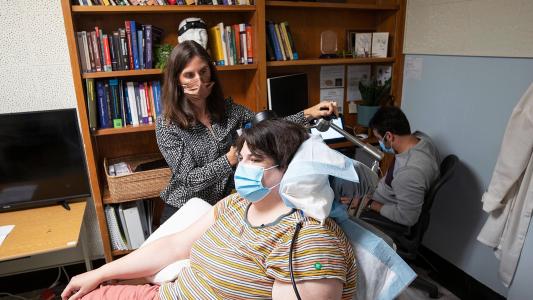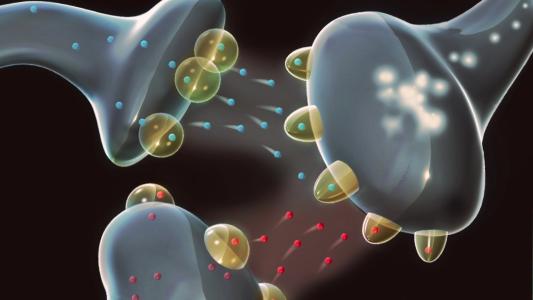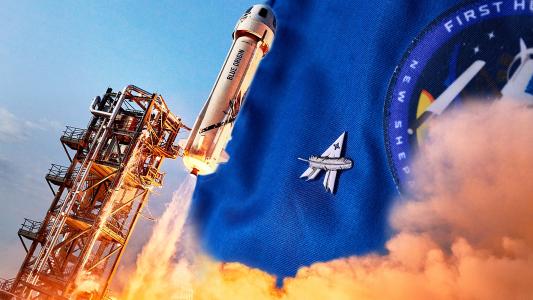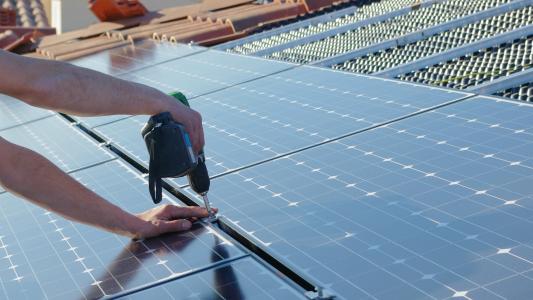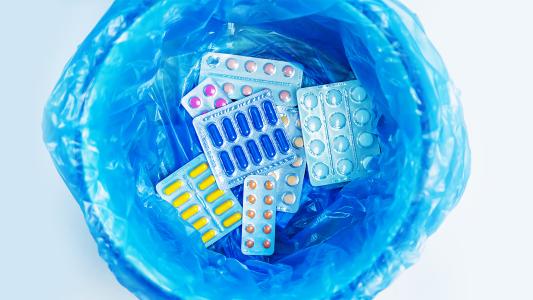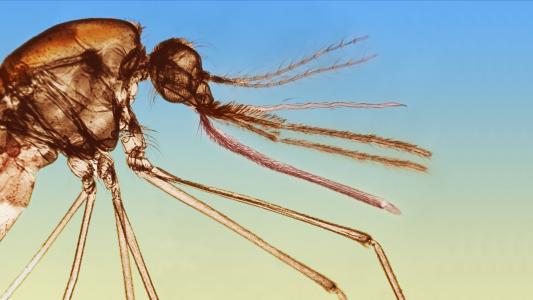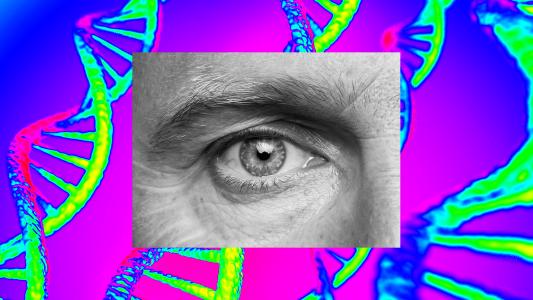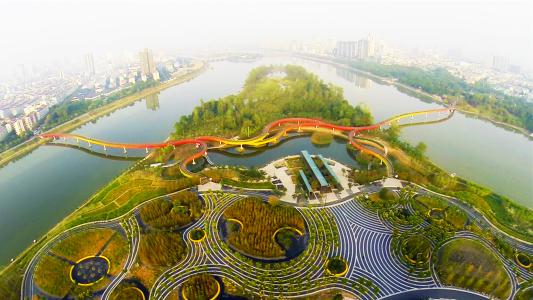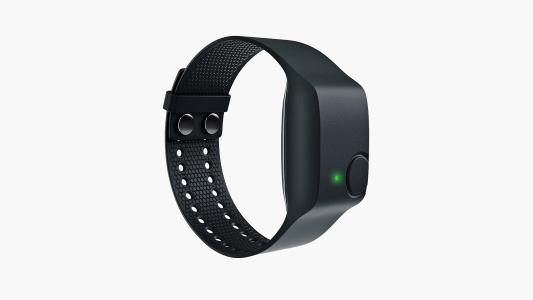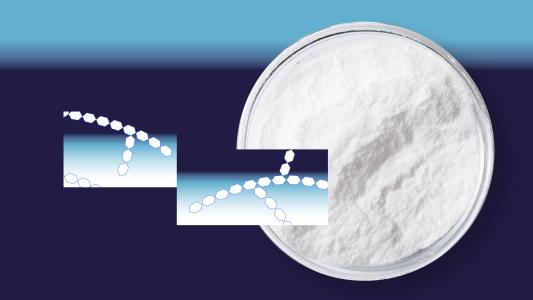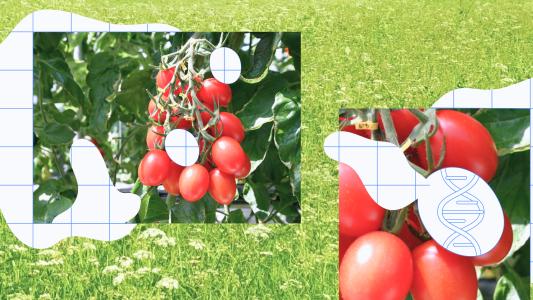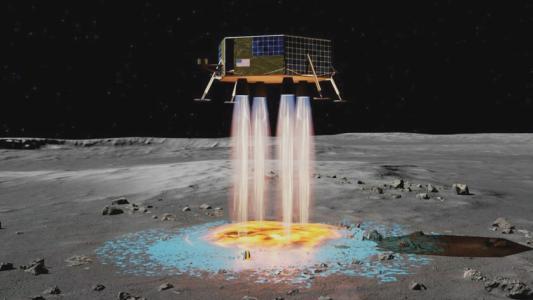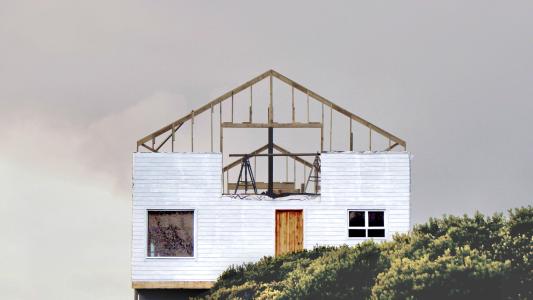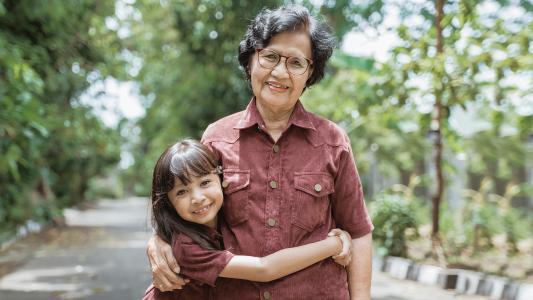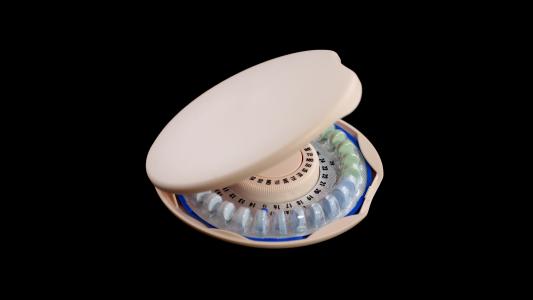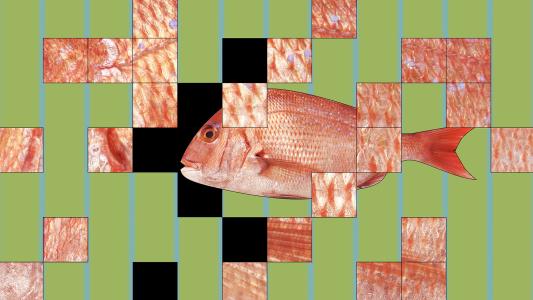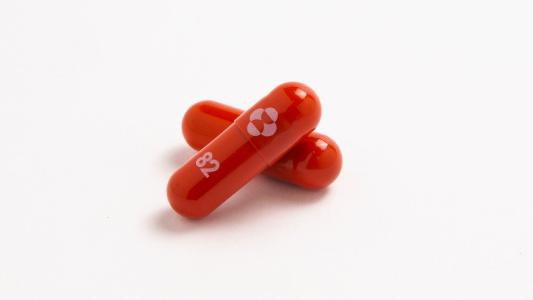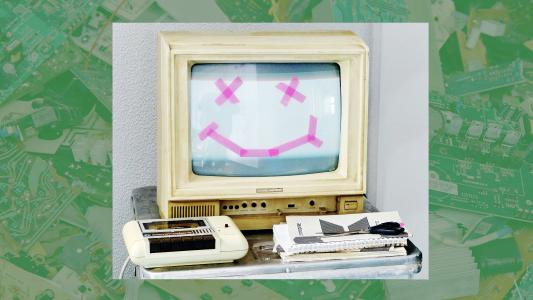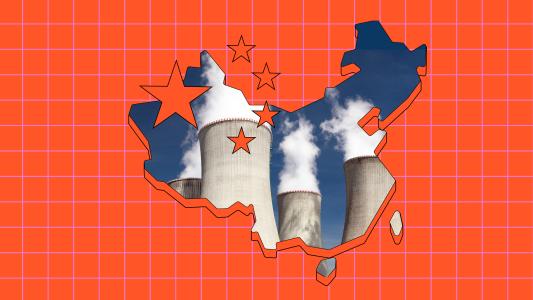Solar energy is about to get a whole lot cheaper
Bottlenecks in the production of silicon thwart solar panel manufacturing. Some companies are turning to perovskite instead.
Superchargers are no longer just for Teslas
Non-Tesla EVs can now use a select number of Tesla Superchargers — and the goal is to expand that access to the entire Supercharger network.
McDonald’s McPlant takes plant-based meat mainstream
McDonald’s McPlant, a burger with a plant-based meat patty, is now available at select locations in the U.S. for a limited time.
Lasers reveal hundreds of Mayan and Olmec ceremonial centers
Archaeologists are hunting for — and finding — previously hidden ancient structures in lidar data collected by planes and drones.
Tissue implant extends lives of children born with athymia
A treatment that could dramatically extend the lives of children born with the rare condition athymia has been approved by the FDA.
Package free store offers work for neurodiverse employees
Opening in North Carolina, Part & Parcel is a package free grocery store that strives to decrease single-use packaging waste and offer inclusive employment.
Rhode Island will be the first state to open safe drug consumption sites
In an important test of drug harm reduction techniques, Rhode Island is set to become the first state to open safe consumption sites.
ICON to build world’s largest community of 3D-printed houses
Startup ICON is building the world’s largest community of 3D-printed houses — a move that could help bring the homes to the mainstream.
A new clue in why oral vaccines don’t work as well in developing countries
Oral vaccines are crucial to public health, but work worse where they are needed most. A new mouse study has a potential reason why.
Forget Mars, let's terraform the moon
We need to make outer space more Earth-like if we're going to inhabit it one day — let's start with the moon, not Mars.
Wireless power demonstration overcomes a major hurdle
Engineers have made optical beaming work in a proof-of-concept experiment. Their demonstration showed that wireless power could be just around the corner.
Fungus-based “mycoprotein” may be the next future food
Startups around the world are racing to get mycoprotein — food based on fungus — to plates.
Autonomous race cars compete for $1 million prize
Autonomous race cars sped around a world-famous track in pursuit of a $1 million prize during the Indy Autonomous Challenge.
Billionaire plans to build a block-chain Facebook alternative
Billionaire entrepreneur Frank McCourt is funding Project Liberty, a new blockchain-based technology that decentralizes users’ social media data.
New thruster tech that vaporizes metal could help clean up space
Hypernova Space Technologies’ metal-fueled propulsion system for small satellites could be a game-changer for space exploration.
These hologram machines bring us a step closer to our sci-fi dreams
There are 100 of these hologram booths currently located all around the world from Abu Dhabi to Miami.
A brain implant lets a blind person see again — without using their eyes
A former science teacher who had been blind for 16 years received a brain implant that allowed her to see shapes again.
Can digital twins solve our supply chain problems?
Supply chains around the world are feeling the strain of COVID-19. Are AI-powered, highly detailed “digital twins” the key to a smoother future?
We now know the big bang theory is (probably) not how the universe began
Scientists used to think the universe began from a singularity. Nearly 100 years later, we're not so sure.
Meta is here — and it’s a big deal
Meta and other companies are building the next-level digital world right now — and this will completely change how we interact with each other.
Nonprofit builds tiny houses for homeless people in backyards
Facing Homelessness builds tiny houses for homeless people in Seattle homeowners' backyards to address a shortage of affordable housing.
Rwanda is blasting killer mosquitoes with drones
Rwanda is deploying drones to target mosquito larvae — spraying anti-mosquito insecticides in areas where the frequency of mosquito-borne illness remains high.
Crypto and traditional art are merging — and the result is fantastic
The addition of a physical component could help crypto art go mainstream.
You can now buy a flying car for $92,000
More than 150 companies are developing flying cars. Here's why they're aren't yet off the ground and darting across city skies.
Preventative breast cancer vaccine enters human trials
A breast cancer vaccine entering human trials is designed to prevent triple-negative breast cancer — the deadliest, most aggressive form.
Merck is making its COVID-19 antiviral pill more affordable to low-income countries
Drug maker Merck has agreed to license a promising antiviral pill to treat COVID-19 to low- and middle-income countries for free.
Ex-SpaceX engineers bring Mars colony tech to Earth
Inspired by Mars colonization, engineers aim to replace diesel generators with nuclear microreactors
You can now mix and match COVID-19 booster shots
Americans eligible for COVID-19 booster shots no longer need to stick to one brand. Here’s why that’s a big deal.
Using AI to help save wine from wildfires
California startup Tastry is using its wine “tasting” AI to help save wines impacted by wildfire smoke.
DIYers create halloween costume for 10-year-old in a wheelchair
Many Halloween costumes are not designed for kids who wear them sitting down — the maker community wants to change that.
The metaverse is coming. Cathy Hackl explains why we should care.
We're about to enter the metaverse. This will completely change how we interact with our environment, says Futurist Cathy Hackl.
FDA panel recommends COVID-19 vaccine for 5 to 11 year olds (Updated)
An FDA panel voted to authorize Pfizer’s COVID-19 vaccine for kids ages 5 to 11. Here’s what you need to know about it.
Scientists got an animal to breathe without oxygen
Scientists discovered a way to keep tadpoles alive, even without environmental oxygen — by injecting photosynthetic algae into their brains.
The future of cryptocurrency: reasons to be both optimistic and skeptical
This tech is usually framed as either the answer to all of our problems — or as a complete waste of time. The truth is probably in the middle.
We could see planes fueled by captured CO2 in 2022
Dimensional Energy, a startup based in New York, plans to use this new environmentally friendly jet fuel to conduct flight tests by 2022.
Lizard regenerates perfect tail thanks to stem cells
A USC study that prompted lizards to regenerate tails that were “perfect” could help facilitate breakthroughs in human regeneration.
First-ever: drone delivers lungs for transplant
An uncrewed drone has carried a pair of lungs from Toronto Western Hospital to Toronto General Hospital. It was the first time lungs were transported by drone anywhere in the world.
Artificial pancreas tested for the first time in type 2 diabetes patients
University of Cambridge researchers have tested an artificial pancreas for the first time in patients with both type 2 diabetes and kidney failure.
Cooling caps can help prevent chemo hair loss
Chemo hair loss is a common side effect for cancer patients, but cooling caps can help limit the loss.
“Pulverize It”: The plan to slice and dice space rocks
To prevent asteroid impacts, UCSB physicists suggest we slice up the space rocks using arrays of “penetrator rods.”
5 recent breakthroughs that completely changed electronics
From wearable electronics to microscopic sensors, new advances are bringing "impossible" electronics to life.
Resume-bot goes viral. Lands multiple job offers
A marketing professional decided to think creatively and create a resume-bot. It helped him land 14 interviews and 11 job offers.
Airless tires get their public test drive
Decades in development, Michelin’s airless tires finally hit the road.
New startup takes vertical farming underground — literally
GreenForges is building an underground farm it thinks will deliver the benefits of vertical farming without two of its major shortcomings.
Faster internet may be the key to reducing unemployment
People with access to fast internet were more likely to be employed, according to a new study.
A robot boat tows kelp forests and sequesters carbon
The startup, Phykos, has sent a prototype of a solar-powered watercraft on a carbon-sequestering cruise in the Pacific Ocean, using an innovative kelp forest.
Foldable electric cars join emergency response fleet in Israel
Emergency medical service organization United Hatzalah is adding foldable electric cars to its fleet to speed up its response times
HIV treatment gets green light for human trials
Excision BioTherapeutics is cleared to begin human trials of a CRISPR-based HIV treatment that’s administered in just one IV infusion.
Here’s what is really going wrong at our ports — and one simple, fast solution
There's a myriad of disruptions along the entire chain. Solving this crisis before the global economy spins out of control is going to take many different and innovative approaches.
Architects design new mental health facilities with healing in mind
Architects are incorporating neuroaesthetics insights into designs for medical facilities in an attempt to promote positive mental health.
Johns Hopkins receives the first NIH grant for clinical psychedelic research in half a century
For the first time in decades, the National Institutes of Health is funding a clinical psychedelic study, perhaps a turning point for the field.
This new concrete soaks up a greenhouse gas
Engineers in Japan have discovered a new method for making concrete by recycling concrete rubble — and combining it with carbon dioxide drawn from the atmosphere.
Prisoners will get a $2,750 check when they leave prison
A non-profit is experimenting with providing prisoners a $2,750 check when they leave prison. The goal is to reduce recidivism and help people get a fresh start.
New water purification tablet makes river water safe to drink
A new water purification tablet that simply and quickly decontaminates river water could help address global drinking water scarcity.
Genetically modified barley can grow meat protein
An Icelandic firm is growing genetically modified barley plants with special “growth factors” that could create lab-grown meat.
Surgeons connected a pig kidney to a human
Scientists linked a pig's kidney to a human body for the first time. This breakthrough experiment marks one step closer toward the goal of using animal organs for life-saving transplants.
Decentraland announces the Metaverse Festival
Virtual reality (VR) platform Decentraland is hosting a four-day long Metaverse Festival, with headliners Deadmau5 and Paris Hilton.
Air Force gunship will be equipped with anti-drone lasers
Two U.S. military branches are building compact, portable laser guns — taking us closer to laser warfare.
Ear sensor can monitor COVID-19 patients remotely
An ear sensor successfully alerted doctors to signs that COVID-19 patients isolating at home were getting worse and should be hospitalized.
Robotic exoskeleton gives prosthetic legs a power boost
University of Utah engineers have built a robotic exoskeleton that gives people with prosthetic legs a power boost that makes walking easier.
Nuking an asteroid heading to Earth really could protect us
Blowing up an asteroid heading to Earth with a nuclear bomb could save the planet, according to new planetary defense simulations.
Magic Leap is back with a new AR headset
Augmented reality startup Magic Leap plans to release a new AR headset in 2022 using a recently raised $500 million in funding.
Germany unveils first-of-its-kind autonomous train
A new system that turns a standard electric metro train into a more efficient, higher-capacity autonomous train has debuted in Germany.
Are robotic kitchens the future of food?
Restauranteurs are using robotic kitchens to cut real estate costs, opening up room in their budgets for higher quality ingredients.
Japan is restarting aging nuclear reactors after 10 years offline
Three of Japan’s nuclear reactors closed after the Fukushima disaster are restarting, a controversial move designed to reduce CO2 emissions.
Caltech’s walking robot can also fly and skateboard
Caltech's new bipedal walking robot can fly to get around obstacles, and it's steady enough on its feet to skateboard or slackline.
William Shatner has boldly gone to space with Blue Origin
Star Trek actor William Shatner has gone to space as a passenger aboard Blue Origin’s second crewed flight — making him the oldest astronaut.
Facebook robot winds fiber-optic cable around power lines
A Facebook robot that wraps fiber-optic cables around power lines could help bridge the digital divide by expanding internet access.
Electric school buses: good for the planet, better for kids
School bus electrification is on the rise and heading toward a national fleet of people-movers that is healthier all around.
Solar power batteries offer Nigerians green energy
A startup in Nigeria is offering solar power batteries at corner stores.
Smart microscope slides make breast cancer cells leap off screen
Breast cancer cells appear brightly colored when placed on new smart microscope slides, which could help doctors diagnose patients earlier.
Inside Europe’s largest vertical farm
At a massive vertical farm in Denmark, food tech startup Nordic Harvest is demonstrating the benefits of moving agriculture indoors.
New EV charging station quickly powers four vehicles at once
Swiss tech company ABB has unveiled a new EV charging station that can quickly power four vehicles at once.
CRISPR is revolutionizing medicine — its origin story is pretty incredible, too
The origin story of CRISPR highlights how groundbreaking discoveries can emerge from run-of-the-mill research.
New cardiac patch can be implanted with a syringe
A new cardiac patch developed by Canadian scientists could help repair heart damage by supporting tissue without blocking electrical activity.
Brain implant relieves woman’s treatment-resistant depression
A woman with severe treatment-resistant depression has found relief, thanks to “pacemaker” implanted in her brain by UCSF researchers.
Here’s why sensory perception research was awarded a Nobel Prize
Physiologists David Julius and Ardem Patapoutian were awarded the Nobel Prize in Medicine for their research on human sensory perception.
Science fiction doesn’t predict the future. It inspires it.
Jeff Bezos’ love of Star Trek inspired him to go to space. Here are a few other innovators to draw inspiration from science fiction.
This drone footage from inside a hurricane is wild
Saildrone and NOAA have teamed up to collect footage and data inside a category four hurricane. And they shared the stunning footage online.
Solar panel recycling: how companies will make it work
By recovering the high-value materials, solar panel recycling could become an economically viable option for aging panels.
Therapy can relieve chronic back pain by rewiring the brain
A psychological treatment for chronic back pain left two-thirds of study participants with little-to-no pain after just one month.
WHO recommends its first malaria vaccine
A malaria vaccine developed by GlaxoSmithKline, Mosquirix, has been recommended for use by the World Health Organization.
CRISPR partially restores vision in colorblind people
Scientists used CRISPR to direct edit DNA inside a healthy human cell, restoring partial vision to blind people.
Can sponge cities help us prepare for more floods?
Deadly floods are expected to get worse over the next decade. One design solution for cities is to make them more porous — like a sponge.
Robot avatar safely trims trees around active power lines
A robot avatar that mimics the motions of a human controller could take the place of workers in dangerous jobs by the end of 2022.
Wearable health monitors help predict flu before symptoms start
A human challenge trial suggests that wearable health monitors could help predict flu and cold infections before symptoms appear.
Lab-grown milk proteins prove more environmentally friendly
It’s less environmentally costly to produce milk proteins in the lab than to source them from cows, according to a new report.
Scientists convert CO2 into synthetic starch
A process for making synthetic starch from CO2 eliminates the need for growing resource-intensive starchy plants.
This gene-edited tomato may help lower your blood pressure
A gene-edited tomato that may be able to lower your blood pressure is the first CRISPR-edited food to be sold commercially.
These holograms are so real you can touch them
Researchers developed hologram technology that uses air jets to create physical sensations, giving users the ability to feel virtual objects.
Spacecraft tech turns moon dust into “near-instant” landing pads
To protect spacecraft from moon dust, Masten Space Systems is developing a tech that quickly creates landing pads on the surface of the moon.
Startup is turning abandoned houses into affordable homes
The startup nonprofit Parity is renovating abandoned houses in Baltimore and then selling them to locals at affordable prices.
Why employers might pay your parents to watch your kids
The Helpr app makes it easy for working parents to get their employers to pay for backup childcare provided by friends and family members.
Europe backs “space factory” set for 2022 launch
UK startup Space Forge is developing a space factory designed to make “microgravity on demand” a reality for researchers and manufacturers.
An at-home test to find your best birth control option
Seattle-based startup adyn is developing an at-home testing kit to help women find their best birth control method.
Gene-edited fish grow up to 60% more muscle
A gene-edited fish that grows up to 60% more muscle on the same amount of feed could help revitalize Japan’s aquaculture industry.
Pill to treat COVID-19 cuts risk of hospitalization or death in half
A pill to treat COVID-19 that cut hospitalizations and deaths in half could become the first oral medication against the disease.
Can tech rentals solve the problem of electronic waste?
To combat the problem of electronic waste, German startup Grover is now selling Americans subscriptions to laptops, phones, and other tech.
These nuclear reactors can recycle radioactive waste
The future of the nuclear industry lies in developing cheaper and more nimble reactors.
China’s experimental thorium reactor is ready for testing
An experimental thorium reactor in China could greatly expand the number of people who can benefit from clean nuclear energy.
